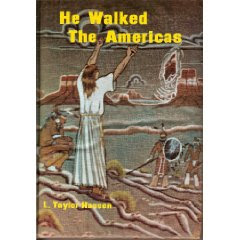 At the beginning of this book, Michael Pollan begins with a brief overview of our recent eating culture in America. He mentions how we are quick to buy into the latest diet fads and have such a pre-occupation with being "healthy" despite our growing eating-related diseases.
At the beginning of this book, Michael Pollan begins with a brief overview of our recent eating culture in America. He mentions how we are quick to buy into the latest diet fads and have such a pre-occupation with being "healthy" despite our growing eating-related diseases. The subtitle to the book is: A Natural History of Four Meals. He then takes a journey, one at a time into the history and current production of four different types of meals:
Industrial
Pollan begins with a deep exploration of the food-production system from which the vast majority of American meals are derived. This industrial food chain is largely based on corn, whether it is eaten directly, fed to livestock, or processed into chemicals such as glucose and ethanol. Pollan discusses how the humble corn plant came to dominate the American diet through a combination of biological, cultural, and political factors. The role of petroleum in the cultivation and transportation of the American food supply is also discussed.
A fast food meal is used to illustrate the end result of the industrial food chain.
Organic
The following chapter delves into the principles of organic farming and their various implementations in modern America. Pollan shows that, while organic food has grown in popularity, its producers have adopted many of the methods of industrial agriculture, losing sight of the organic movement's anti-industrial roots. A meal prepared from ingredients purchased at Whole Foods Market represents this food chain at the table.
Local
As a study in contrast, Pollan visits Joel Salatin's small-scale ecological rotation farm, where natural conditions are adhered to as closely as possible, very few artificial inputs are used, and waste products are recycled back into the system. He then prepares a meal using only local produce from nearby small-scale farmers.
Personal
The final chapter finds Pollan attempting to prepare a meal using only ingredients he has hunted, gathered, or grown himself. He recruits assistance from local foodies, who teach him to hunt feral pigs, gather wild mushrooms, and search for abalone. He also makes a salad of greens from his own garden, bakes sourdough bread using wild yeast, and prepares a dessert from cherries picked in his neighborhood.
Pollan concludes that, while such a meal is not practical on a regular basis, as an occasional exercise it helps to reconnect us with the natural origins of food as well as human history.
I really liked how the author seemed to be honest about his feelings and kept an open mind throughout all 4 journeys he went through. It is one thing to learn about new things, but to explore the feelings and associations that go along with our culture gave the book and even more applicable slant. Throughout the book, I tried to find biased opinions or maybe an "agenda", but I was impressed that he seemed to be pretty objective and let the reader come to his own conclusions about the discoveries of his journey. After reading the book, I came away feeling the importance of local food, supporting the small farmer, and a desire to be more self reliant.
I was fascinated with the "Local" meal journey and the week spent on Joel Salatin's farm. I was moved by his philosophies and his method as he strives to become a "caretaker of creation." As we are seeing with America's incredible rates of preventable diseases, the low costs of our food in reality are costing us a great deal more than we realize. I will be reading Michael Pollan's next book, "In Defense of Food"

No comments:
Post a Comment